07 Oct Managing Compliance Risk
Compliance refers to corporate practice for adhering to the rules and regulations. Whereas compliance risks identify the financial and legal penalties your business faces when failing to follow the internal and external regulations.
Common Types of Compliance Risks
Seven types of compliance risks affect most companies. These are:
- Regulatory and Political Uncertainty
- Data Protection
- Conflicts of Interest
- Market Risk
- Conduct Risk
- Corruption
- Quality
Some businesses ignore compliance risk management and consider penalties as a part of their operating costs. Some companies exploit the grey areas for immediate benefits only to suffer later. For instance, in the banking sector, misrepresenting facts when selling credit cards affects millions of consumers leading to billions of dollars in fines.
That said – regardless of what your company’s stance is on compliance risk management, your front line staff can be your defense against the threat.
Front Line Staff is Your First Line of Defense
The risk management methodology has followed the three lines of defense model for some time. However, increased emphasis is now placed on the role of frontline staff.
There is a prevalent recognition that the employees who undertake day-to-day roles within your organization can effectively identify and mitigate most compliance issues.
While your internal audit and compliance teams play a vital role, it is actually your frontline staff that demonstrates resilience in the face of compliance risk factors. The regulations that aim to increase the standard of individual behavior and accountability are facilitating this shift.
Why Frontline Staff are a Critical Component?
Businesses can no longer rely on procedures and policies alone to manage compliance risks. The compliance processes and policies are to prevent compliance problems that have already happened in the past.
These policies and procedures help you outline what actions you must take to prevent or manage an issue if it happens again.
However, when your organization faces rapidly evolving operations such as digital transformation and disruptions or ever-changing regulatory and legal landscape, you need to equip your staff with efficient tools to identify or mitigate future problems.
Your front line staff uses their judgment to make the right decision when a compliance risk scenario presents itself. This also helps with quickly identifying areas you may not have considered yet to apply your compliance values and principles.
The staff may also be able to help identify potentially problematic areas in runtime. They may also feel a sense of achievement and empowerment to identify and raise concerns.
Think of your frontline staff as the eyes and ears of your company. Their vigilant attitude and awareness are your best line of defense against potential compliance risk issues not only today but in the future as well.
Conclusion
Regardless of what compliance risk management policies you deploy, your business will always be susceptible to new compliance issues.
Earlier identification of an existing or imminent risk will help you deploy the right protocols and even nip the problem in the bud before it happens. Thus, educate your frontline staff and empower them with knowledge so you can develop an efficient compliance risk management culture.
Talk to us today about managing your compliance risk.
To find out more, contact one of our talented Risk Advisors today!


No Comments